Our Arabic Minors
GRADUATING MINORS: 2025
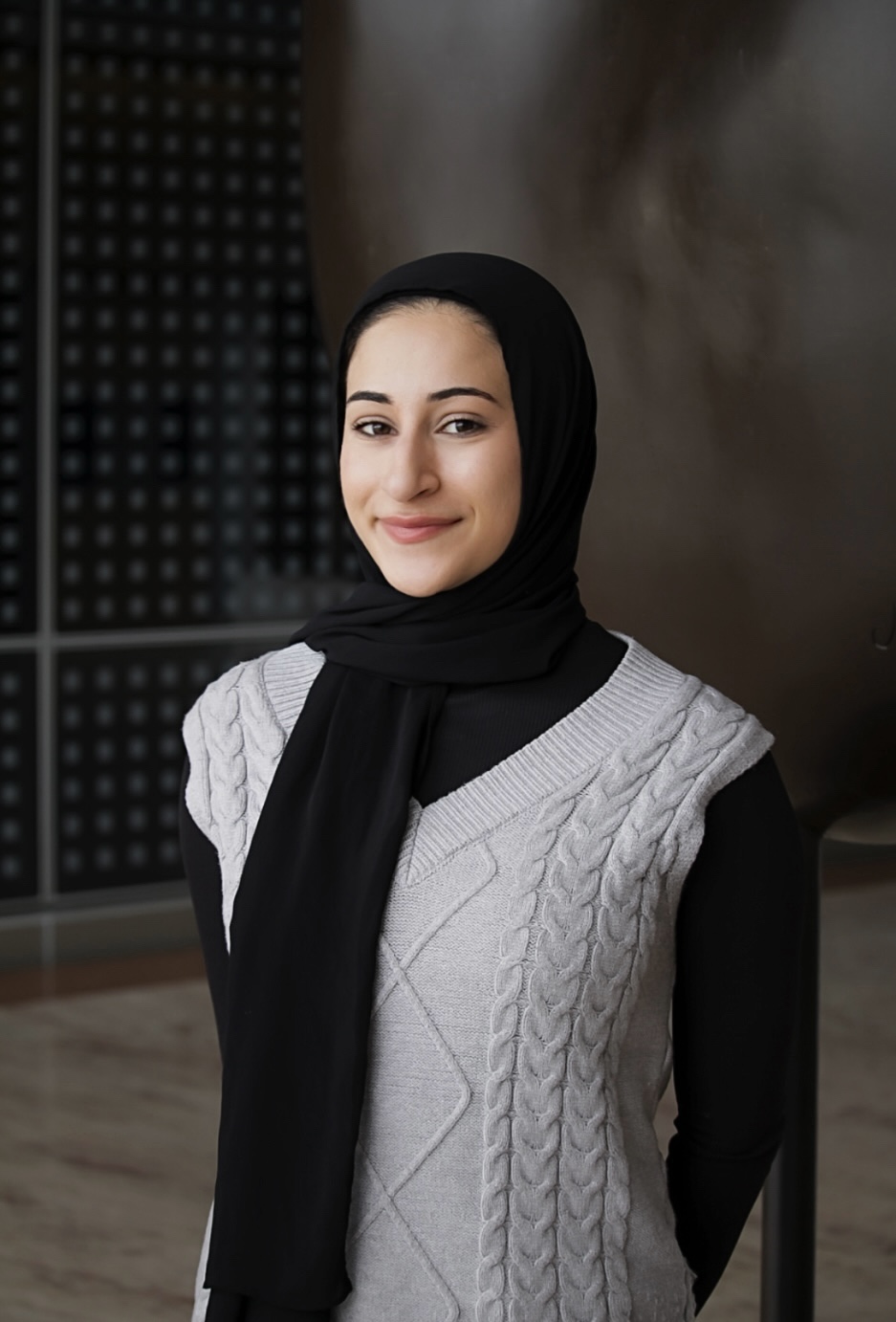 Hebah Alshaikh
Hebah Alshaikh
Studying Arabic at Northwestern has been the highlight of my academic journey. From inspiring professors to my immersive study abroad experience in Jordan, I chose to study Arabic to reconnect with my roots and strengthen my language skills. As a first-generation student born and raised in the U.S., it has meant so much to me to feel closer to my heritage on campus and to engage more deeply with the language of the Qur’an.
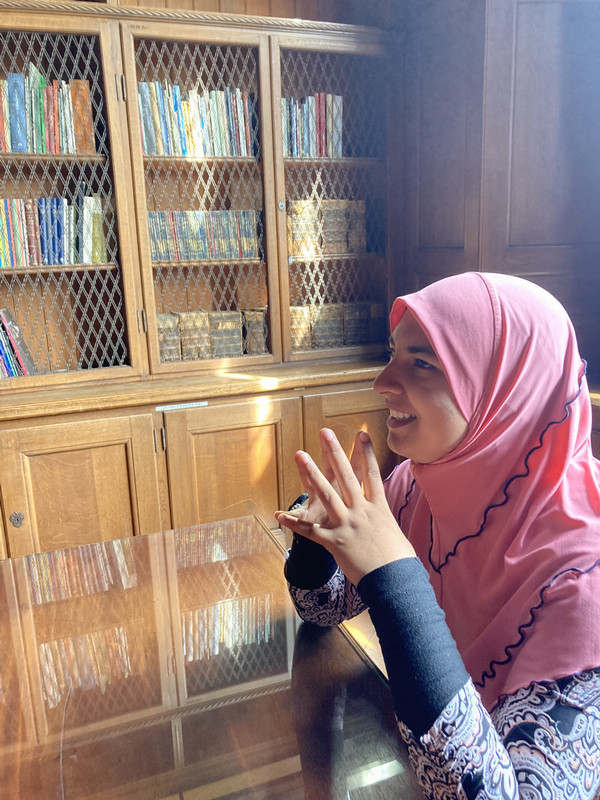 Asiya Arastu
Asiya Arastu
My primary motivation for studying Arabic has been to strengthen my relationship with my faith by acquiring the language skills I need to connect directly with Islamic primary sources. While completing my coursework for the Arabic minor, not only did I have a chance to explore a variety of Islamic texts, but I got a glimpse of the full spectrum of Arabic literature spanning from the pre-Islamic era until today. Going forward, since Creative Writing has been my primary focus of study, translation is where I believe my future career as a writer and my passion for Arabic intersect. In particular, I aspire to translate scholarly and literary texts from Arabic to English, and to do it in a manner that retains the original text’s meaning, impact, and literary merit. I still have a long way to go in my studies before I reach that level, but now I have a solid foundation from which to begin!
〉 Noor Hamid
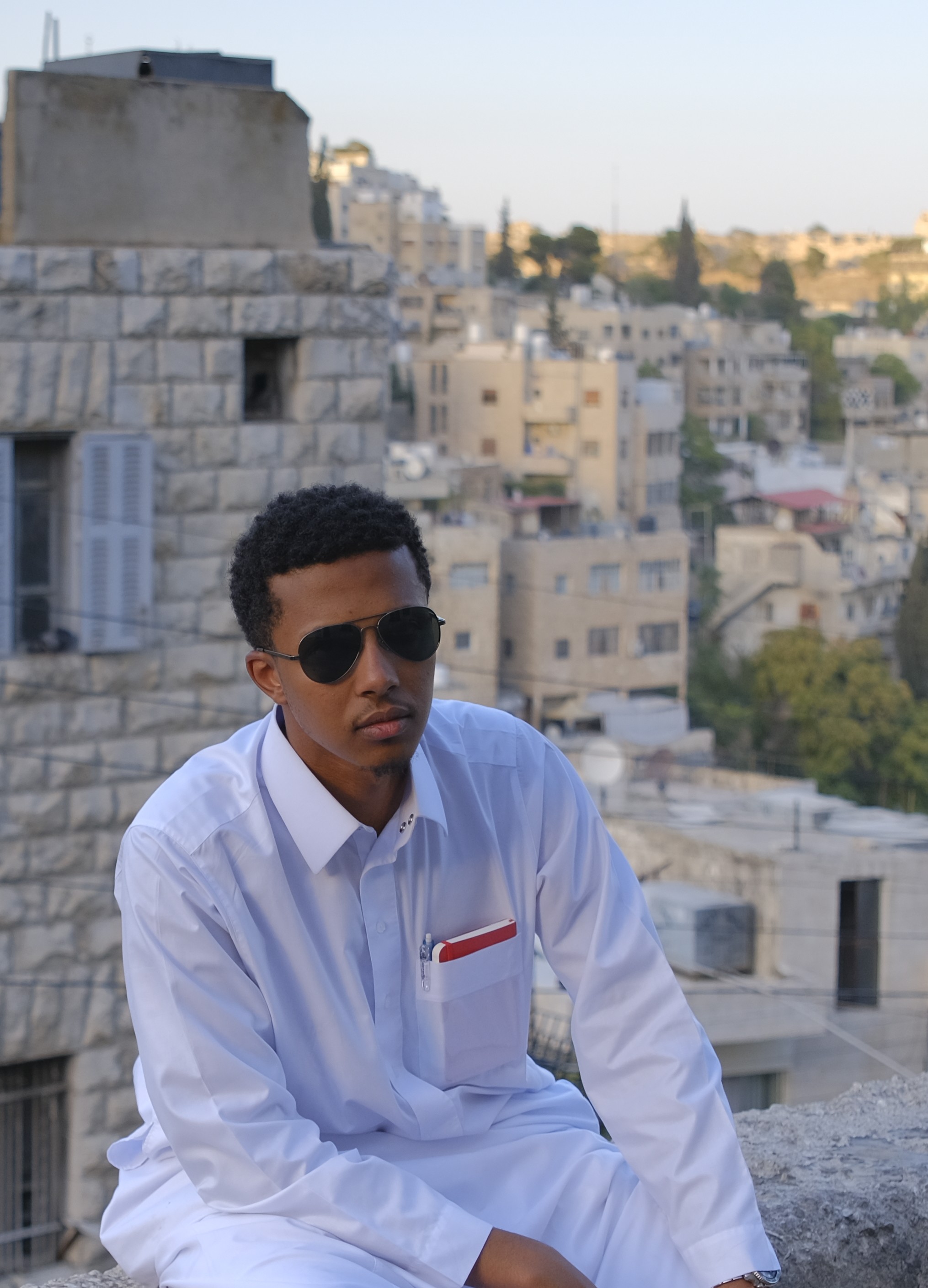 Mustafa Ismail
Mustafa Ismail
As a practicing Muslim of Ethiopian background, I grew up learning to read the Qur'an but without understanding its meaning. This inspired me to study Arabic, both to deepen my connection to my faith and to engage more fully with the language of the Qur'an. During my time studying abroad in Jordan, I developed a deep appreciation for Arab culture and society, and I now envision myself living in the Middle East in the future. Beyond personal growth, Arabic has become an important tool for my professional goals. After graduation I plan to travel to The Middle East to further study Arabic during my gap year. In the distant future I hope to use my Arabic skills to work in healthcare and humanitarian fields across Arabic-speaking regions, helping to bridge language gaps and provide more accessible, culturally sensitive care.
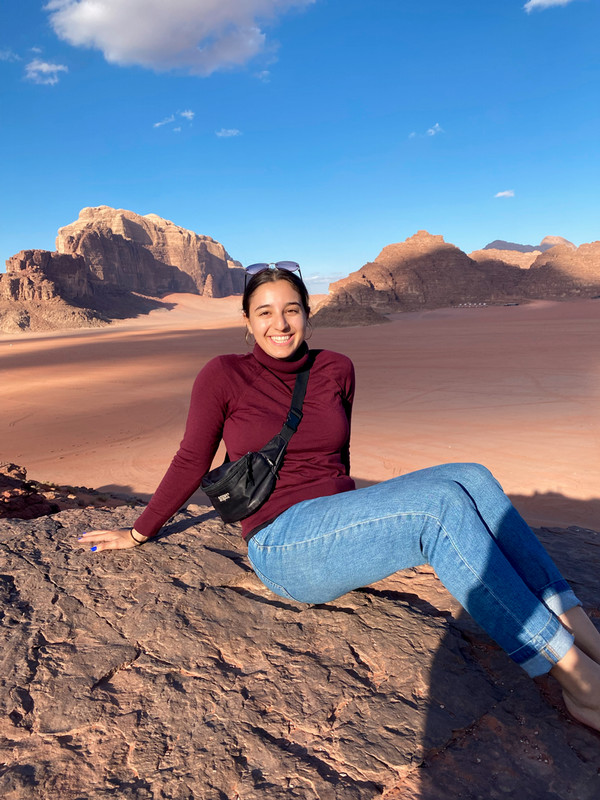 Isabela Lisco
Isabela Lisco
”I believe a language is like a pair of glasses that we put on to understand how someone else views the world and to view our own reality through a different lens. Arabic has been a challenging journey for me, but it has also given me a deep appreciation for the language's nooks, crannies, and wonders. It has allowed me to forge meaningful relationships with new people and create connections that transcend cultural differences to uncover a kernel of shared humanity. Thank you to my Northwestern professors -- Ustadha Rana, Ustadha Fatima, Ustadha Fadia, and Ustadh Ragy -- for supporting and encouraging me. Short term, I hope to use Arabic to report on underserved areas of society in my new position as an Education Solutions Reporter. Long term, I hope to continue my studies and promote language learning as a bastion against the rising tide of those who refuse to see the world through any eyes but their own -- who refuse to try on a new pair of glasses."
〉 Omar Sharaf
GRADUATING MINORS: 2024
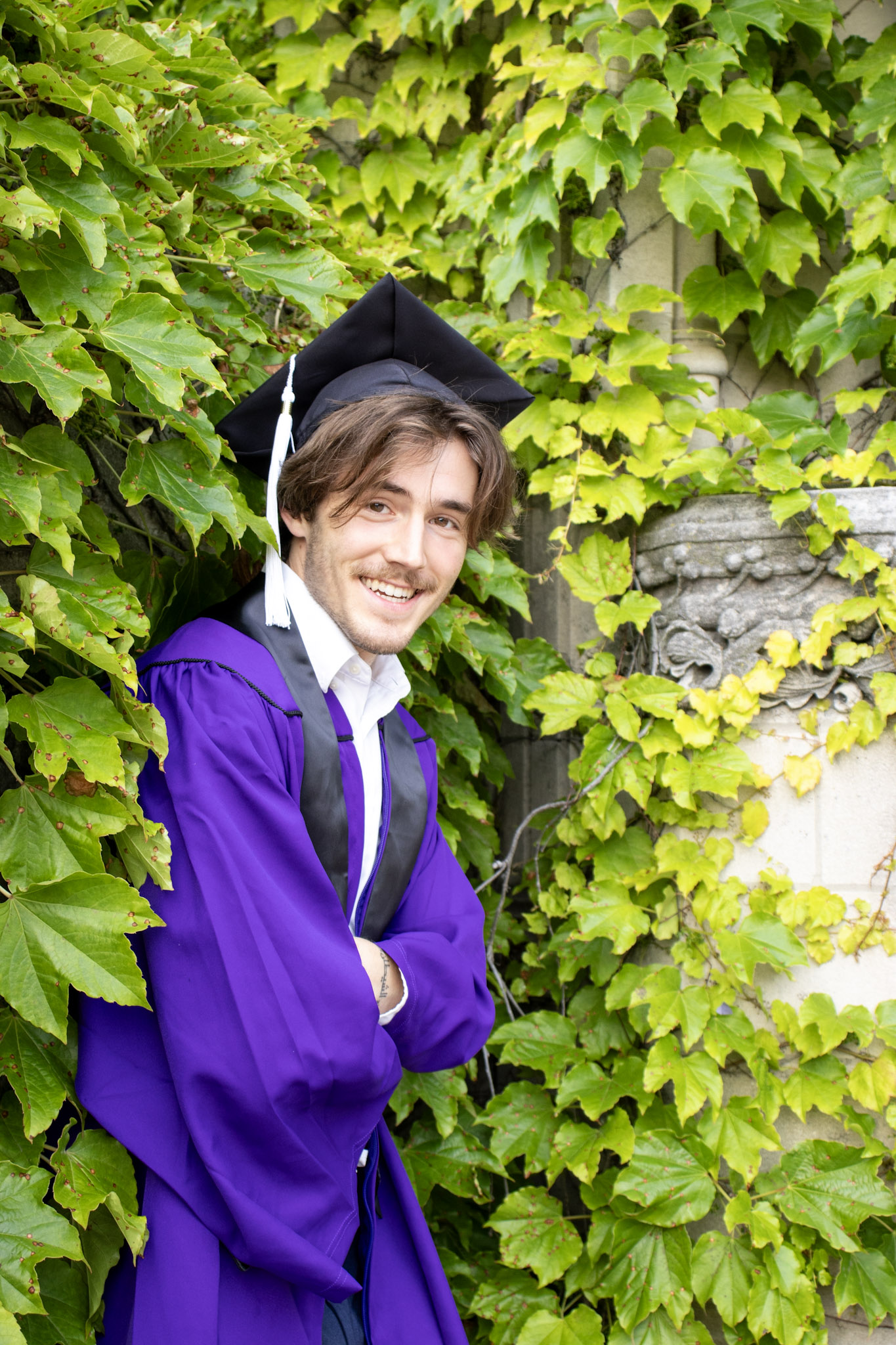 Tomas Gordo-Churchill
Tomas Gordo-Churchill
I knew I wanted to spend a large portion of my studies at Northwestern to learning languages, but I chose Arabic specifically because although it’s more difficult than other languages, I’ve been able to make much more significant connections across seemingly inaccessible cultural barriers. For example, I’ve had the chance to speak with Palestinian farmers in the West Bank, talk to Syrian refugees in Austria, and connect with the Arab diaspora in Chicago. Speaking with so many Arab voices directly has given me the invaluable opportunity to form my own opinion of many events involving the Arab world that would otherwise be shaped by the media. I plan to continue deepening my understanding of the MENA region with a Fulbright ETA to Morocco this coming academic year. There, I hope to further improve my Arabic and French while preparing the next steps in my career.
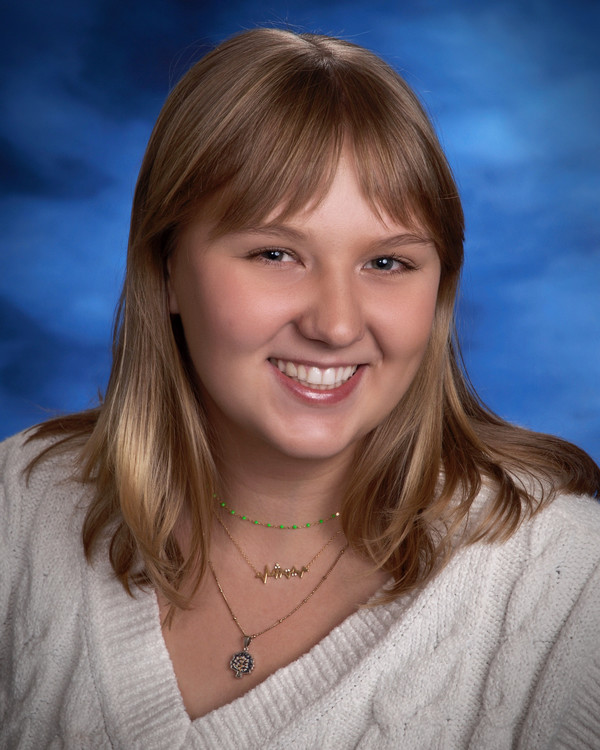 Rachel Spahn
Rachel Spahn
Language is not only essential for communication, but it also encourages a fundamental, immersive connection to different people and cultures. When my study abroad program in Jordan hosted a quick refresher on nouns and verbs at the grocery store or a restaurant, I didn’t expect one of my favorite words in Arabic to become ‘to nourish’. While the Arabic word for nourish — غذى — very literally means feeding/ nutrition/ supply, my friend Yasmeen and I used to throw that word around on the streets of Amman poetically: the sights nourish me, my relationships nourish me, or we nourish each other. I still laugh when I think of that word two years later, but it holds true. Arabic language nourishes me. From studying the language’s foundations in Arabic 111-1 to graduating as NU’s first Arabic minor, my four years of studying Arabic at Northwestern taught me that commitment and humility can nurture the greatest of friendships and experiences. Studying Arabic led me to work at an NGO in Jordan, where I discovered my passion for public policy, which in turn led me to complete an honors thesis in Middle East and North Africa (MENA) Studies and pursue an MA in politics and economics of the Middle East in London. It also connected me to some of my best friends and the MENA languages program that has supported me tirelessly throughout my journey at Northwestern and beyond. Learning a language is essentially learning a new way of connection; sharing a language humanizes the joys and hardships of people across various cultures and backgrounds. Not only is Arabic a gorgeous (and I mean GORGEOUS) language, but it has been my tool for connection. As I finish graduate school and will begin working in London this fall, I plan to use my Arabic skills to continue these cultural exchanges and connect with people. I owe my time at NU and the professors who nourished my love for the language all the gratitude in the world. If you’re considering taking the chance on Arabic, I can guarantee it will be worth it, even if only for a quarter or for the rest of your life.
